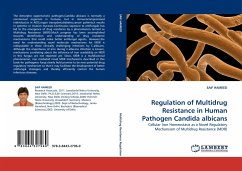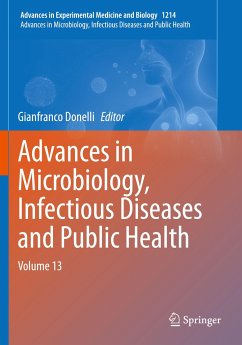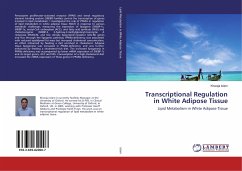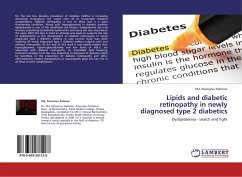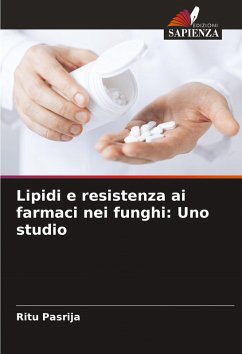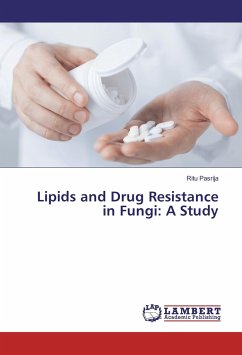
Lipids and Drug Resistance in Fungi: A Study
Versandkostenfrei!
Versandfertig in 6-10 Tagen
41,99 €
inkl. MwSt.

PAYBACK Punkte
21 °P sammeln!
Candida albicans is an opportunistic diploid fungus that causes infection in immunocompromised and debilitated patients. Wide spread and prolonged usage of azoles in recent years has led to the rapid development of the phenomenon of azole resistance which poses a major threat to antifungal therapy. Various mechanisms contribute towards the development of resistance in Candida such as overexpression of pumps encoded by genes belonging to ATP-Binding Cassette (ABC) and Major Facilitator Superfamilies of transporters (MFS), and/or mutations in the target enzyme of azoles etc. Based on several stu...
Candida albicans is an opportunistic diploid fungus that causes infection in immunocompromised and debilitated patients. Wide spread and prolonged usage of azoles in recent years has led to the rapid development of the phenomenon of azole resistance which poses a major threat to antifungal therapy. Various mechanisms contribute towards the development of resistance in Candida such as overexpression of pumps encoded by genes belonging to ATP-Binding Cassette (ABC) and Major Facilitator Superfamilies of transporters (MFS), and/or mutations in the target enzyme of azoles etc. Based on several studies, a close interaction between membrane lipids and drug extrusion pump proteins has been realized. It has been shown that the action of antifungals is modulated by subtle modification of the membrane lipid composition.



